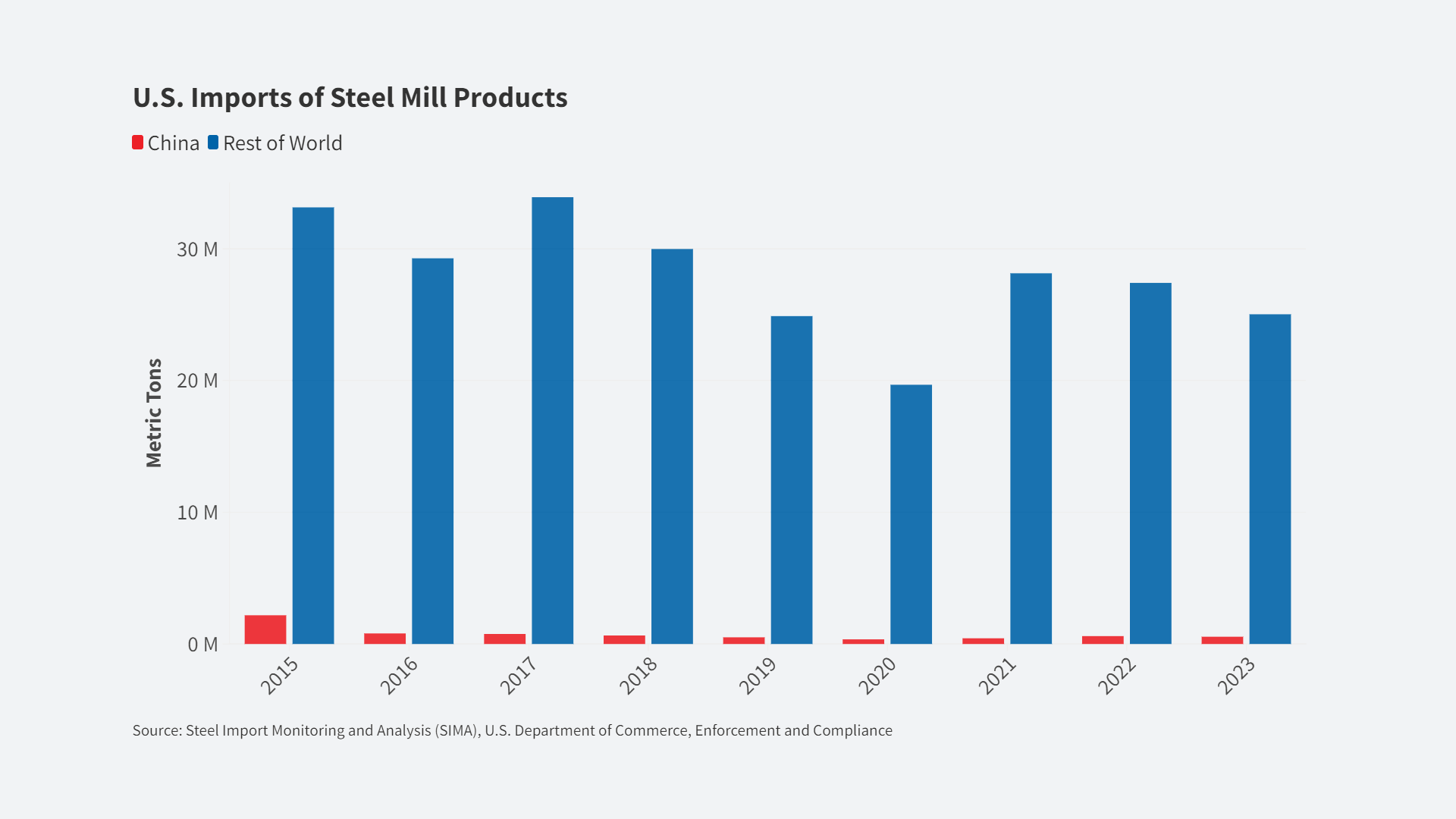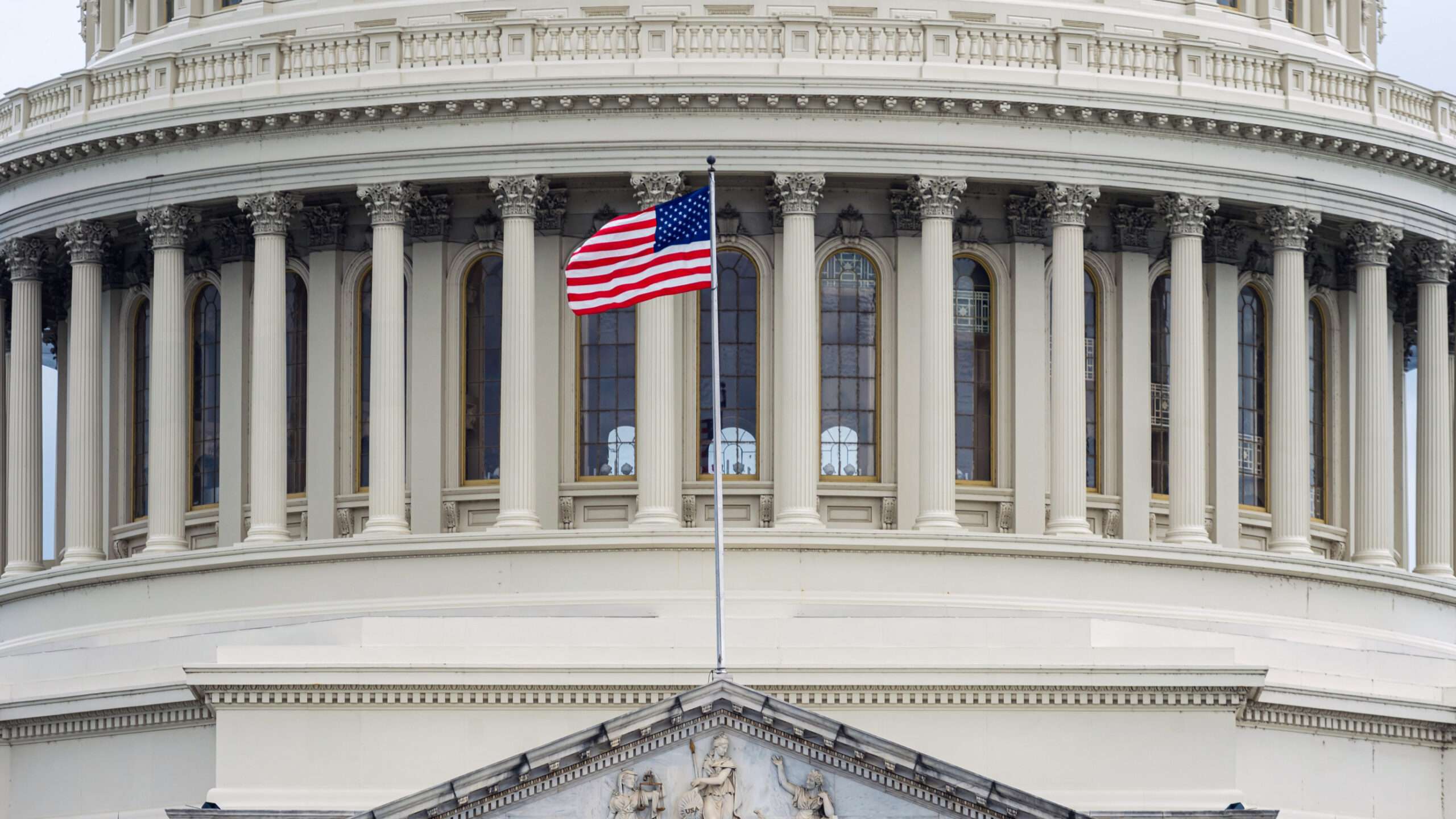By Jeff Ferry, CPA Research Director
The US trade deficit rose another 8.6% in October to reach $48.7 billion as imports in the month hit $244.6B, an all-time record for imports in a single month.
That import figure, which includes goods and services imports, is up 1.6% on the September figure, and up 7% on the year-earlier October imports figure. With ten months’ data for 2017 now published, US imports are running 6.5% ahead of the same period in 2016, indicating that 2017 could finish up with imports at $2.89 trillion, an all-time high for US imports.
On a year-to-date basis, the US trade deficit (including goods and services) for the ten months January through October came in at $462.9 billion, up 11.9% on the same period in 2016. With the trade deficit for the full year of 2016 now put at a revised $504.8 billion, this suggests that the 2017 trade deficit is set to come in above $560 billion this year, perhaps as much as $565 billion. That’s a huge figure but would not be an all-time record. The US trade deficit topped $700 billion in each of the four years from 2005 to 2008.
When you exclude services and look at goods alone, the picture looks worse. Our deficit in goods for the first ten months of the year totaled $666 billion, 7.3% worse than the year-earlier period. On current trends, we are on track for a 2017 goods deficit of $808 billion. The goods deficit is more important than the services surplus, not only because it is more than twice as large, but also because goods create more jobs per dollar of trade than services, and the production of goods typically creates additional business in supporting services.
Congressional Debate on Trade Grows More Combative
The worsening trade picture will keep trade issues at the forefront of political debate in Washington. After winning last year’s election partly on promises to fix America’s “lousy” trade deals and restore manufacturing jobs by reducing imports, President Trump has been slow to take concrete action on the trade front. Senior Trump advisors like Commerce Secretary Wilbur Ross point to recent steps like the federal government “self-initiating” a trade action against Chinese aluminum imports as an example of government action that can deliver real change in our imports. Ross praised self-initiated action for its potential “curative, preventative…and psychological” effect on trade cheaters. Meanwhile, negotiations on the revision of the NAFTA trade agreement may lead to a change in our large and growing trade deficit with Mexico.
As President Trump appears to be moving closer to decisive action on trade, free traders in Congress are growing visibly more restive. On solar panel manufacturing, the ITC recently proposed tariffs against imported panels and solar cells, notably from China, where manufacturers have slashed prices by some 80% to capture 69% of the world market. More than 40 Republican free trade congress members sent a letter to Trump trade advisor Robert Lighthizer urging him to advise the president to reject the tariffs, claiming they would cause “irreparable damage to our domestic solar industry.” Separately, free-trade Senator Heidi Heitkamp (D-ND) urged the Trump administration not to tamper with the Korea-US free trade agreement (KORUS), on the grounds that the US needs a friendly relationship with South Korea for security and foreign policy reasons. “I do not believe long-term that you can segregate your trade relationship from your foreign policy,” Heitkamp said at a recent meeting hosted by a Korean-American lobbying group.
At the Coalition for a Prosperous America (CPA), we have argued strongly that the KORUS agreement has been a failure, destroying US jobs as our deficit with South Korea has doubled, that economic policy should not be subordinated to foreign policy, and that it is unfair and morally wrong to ask unemployed manufacturing workers and suffering farmers to pay the price for Sen. Heitkamp’s foreign policy objectives. On Dec. 5th, CPA chairman Dan DiMicco was appointed a member of President Trump’s new Advisory Committee for Trade Policy and Negotiations, giving CPA added clout in Washington.
The bilateral trade picture in the latest Commerce Department data also shows deterioration in some key bilateral trade relationships. Our goods deficit with China (which accounts for about half of our total goods deficit) worsened by 1.7% in October to a $35.2 billion deficit. On a year-to-date basis, our China deficit is $309 billion, 7% worse than a year ago, and now likely to come in at an all-time record deficit of $371 billion for 2017. Our deficit with Mexico deteriorated by 15.9% in October to $6.6 billion. On the year-to-date basis, our Mexican deficit is 10.4% worse than a year ago, and set to come in around $71 billion this year, the worst result since 2007.













